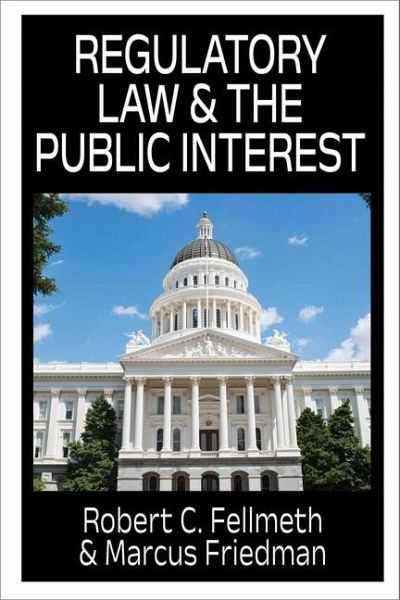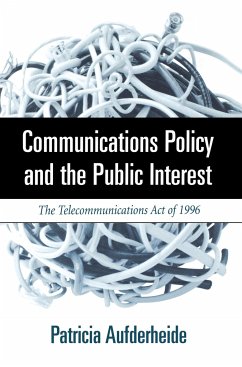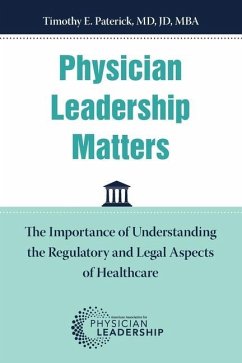
Regulatory Law & the Public Interest
Versandkostenfrei!
Versandfertig in über 4 Wochen
36,99 €
inkl. MwSt.

PAYBACK Punkte
18 °P sammeln!
Most law textbooks are fixated on how the law is understood via appellate decisions by the judiciary. This textbook journeys outside the courtroom and details how government regulatory agencies shape the law and how regulatory decisions can impact the public interest. This text is useful for graduate courses in law, economics, political science, education, and other fields of study. State regulation is crucial to trades and professions, health and safety, insurance, utilities, education, and the environment, et al. This text outlines the basics of regulation, starting with applicable definitio...
Most law textbooks are fixated on how the law is understood via appellate decisions by the judiciary. This textbook journeys outside the courtroom and details how government regulatory agencies shape the law and how regulatory decisions can impact the public interest. This text is useful for graduate courses in law, economics, political science, education, and other fields of study. State regulation is crucial to trades and professions, health and safety, insurance, utilities, education, and the environment, et al. This text outlines the basics of regulation, starting with applicable definitions and elements. It covers presumptions and available alternatives to traditional "licensing" of participants. These include bond or insurance requirements, mandated disclosures, rules of liability involving civil remedies, criminal prohibitions, tax incentives, sale of marketing rights, and subsidies and other mechanisms that do not involve prior restraint licensing. This text outlines the interface with both federal and state constitutional and antitrust law. It sets forth how state regulation works, including the Administrative Procedure Act, sunshine statutes, open meeting requirements, and the Public Records Act as applicable. It covers a broad array of aspects, including interface with legislation, the conduct of rulemaking and judicial functions (e.g., discipline and court review of agency actions). It discusses in detail the ethical standards that apply by statutory or constitutional provision. Further, it features discussion of excessive and inadequate regulation and their respective implications. The text includes excerpts from the laws and major court holdings outlining this information, Provides essays and examples of problems and abuses, and has quizzes and hypotheticals to enliven the discussion. It also includes charts with potential flaws applicable to over 70 listed state agencies, including lack of need, cartel contamination or other conflicts, inadequate staffing, unnecessary or irrelevant barriers to entry, possible location at questionable level of government, unnecessarily in the Constitution, et al. Finally, it provides information about relevant major California agencies in terms of coverage and governance (including bureau, board, commission or other government structure)












